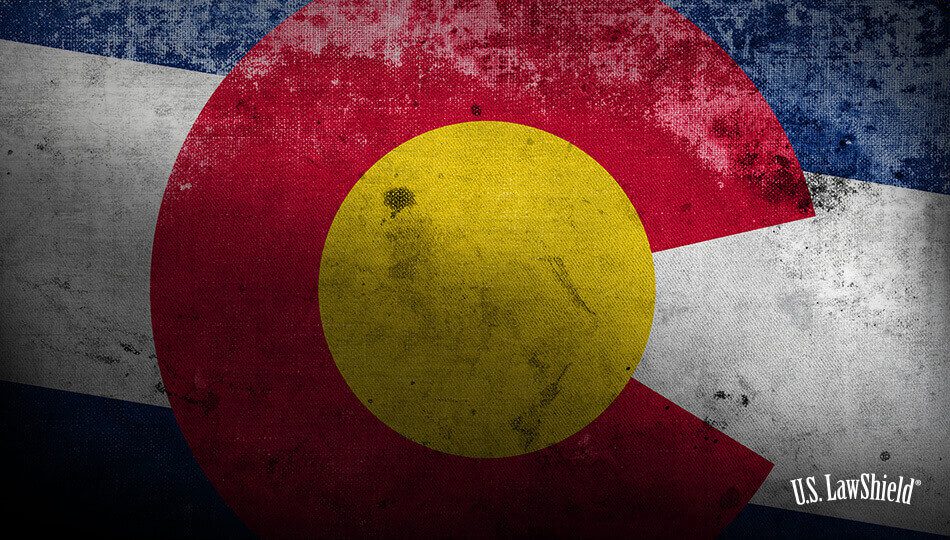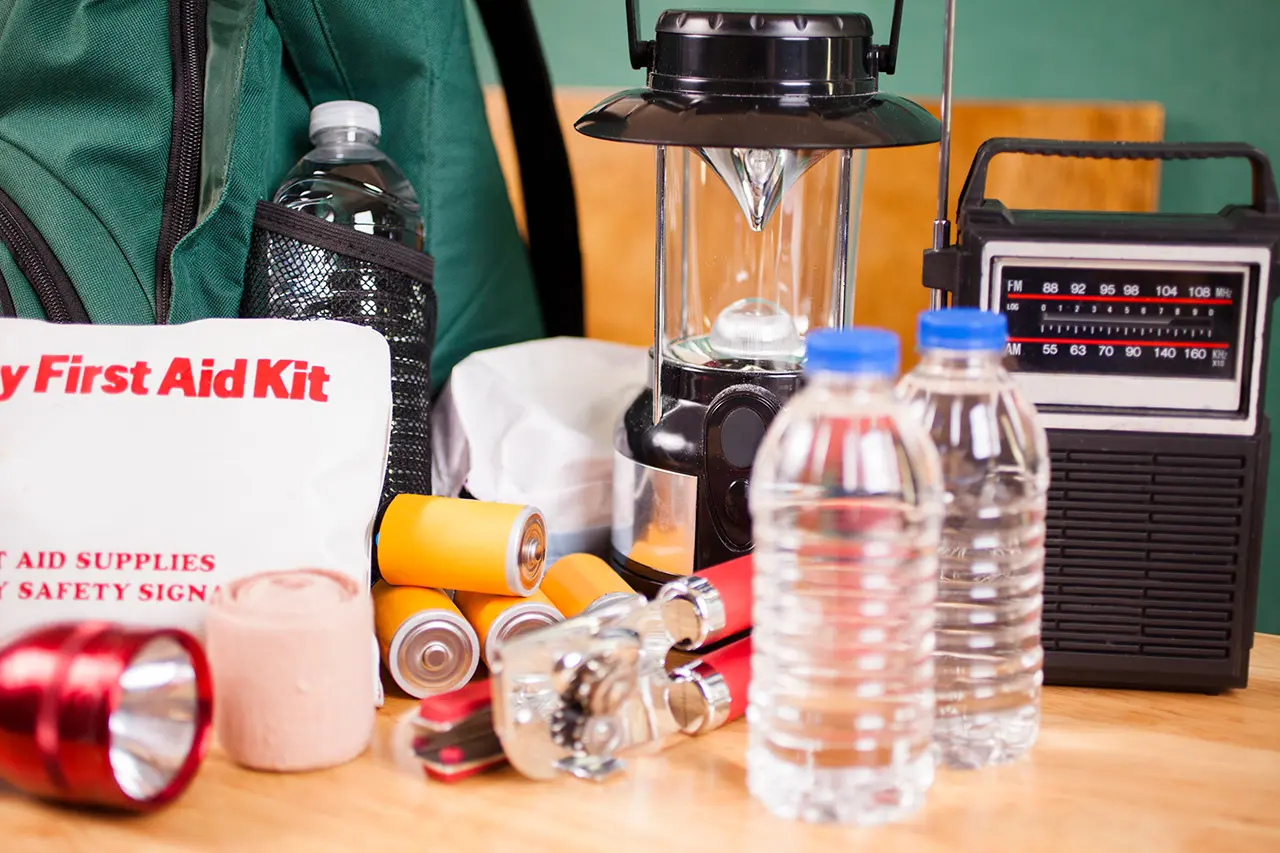
Gun Laws regulating self-defense and the use of firearms are complicated (sometimes by design) and can vary widely from state to state. As a self-defense minded person who cares about the rule of law and protecting yourself and your family, it’s important to be up to date on all the laws that apply to you, including federal, state, or local. In order to help streamline this process, U.S. LawShield® is collaborating with experienced lawyers in the field of self-defense to produce a book of relevant gun laws for each state.
This time, we sat down with Douglas I. Richards and Drew R. Eddy, who co-wrote the book Colorado Gun Law: Armed And Educated. Join us as we talk a bit about the subject of that book, and what makes Colorado gun laws unique.
U.S. LawShield: We appreciate you taking the time to speak with us. What is something that stands out about gun laws in Colorado?
Douglas and Drew: “Colorado is somewhat a middle-ground state when it comes to gun laws and regulations. On one hand, Colorado is a ‘shall issue’ state for concealed carry permits, it does not have a gun registry nor require gun owners to report firearm ownership and doesn’t ban any specific type of firearm on the state level. On the other hand, Colorado recently enacted safe storage and red flag laws, repealed most state pre-emption on gun laws, banned large-capacity magazines, and mandates lost/stolen firearm reporting. Colorado gun laws will likely continue to become more restrictive in the coming years.”
USLS: More restrictive? So, do Coloradans have to be 21 years old to possess a firearm?
D&D: “No, Coloradans do not have to be at least 21 years old to legally possess a firearm.”
USLS: And how old must one be to possess a firearm in Colorado?
D&D: “Coloradans under 18 years of age are prohibited from possessing a handgun, with limited exceptions. There is no minimum age requirement for possession of a long gun.”
USLS: So how does Colorado handle concealed carry permits?
D&D: “Colorado is a ‘shall issue’ state for concealed carry permits. To qualify, an applicant must meet the following criteria: (1) Be a legal resident of Colorado, (2) Be 21 years of age or older, (3) Must not be otherwise prohibited from possessing firearms, (4) Must not chronically and habitually use alcoholic beverages, (5) Must not be an unlawful user of or addicted to a controlled substance, (6) Must not be subject to a protection order, and (7) Must demonstrate competence with a handgun. However, an issuing authority may still deny an application if the issuing authority has a ‘reasonable belief that documented previous behavior by the applicant makes it likely the applicant will present a danger to self or others.’ A denial of a concealed carry permit may be appealed by the applicant.
To apply for a concealed carry permit in Colorado, an applicant must do the following: (1) Complete a permit application and return it, in person, to the issuing authority of the county or city and county in which the applicant resides, maintains a secondary residence, or owns or leases real property used by the applicant for business, (2) Submit the permit fee, (3) Provide the issuing authority with documentation demonstrating competence with a handgun (typically a training certificate from a safety course obtained within the prior 10 years), and (4) Submit a color photograph of the applicant’s head taken within the prior 30 days. The issuing authority must then witness the applicant’s signature on the application and verify the person that signed is the same person that appears in the photograph. The applicant must also present a valid Colorado driver’s license at this time. The issuing authority will then take two sets of fingerprints of the applicant. Finally, the issuing authority will take the completed packet and verify that the applicant meets the required criteria. In doing so, the issuing authority will also request the Colorado Bureau of Investigation conduct a search of the national instant criminal background check system and the state integrated criminal justice information system.”
Enjoying this content? Find out how you can get more sent straight to your inbox.
USLS: Let’s say you and I have concealed carry permits, where do gun laws in Colorado say we can carry a firearm?
D&D: “This question was recently complicated by the passage of SB21-256. That new law repealed (to a certain extent) Colorado’s decades old state pre-emption laws related to firearms. Now, a local government may prohibit concealed carry in a building or specific area within the local government’s jurisdiction. While this new authority has not yet been widely used throughout the state, that may change quickly. For example, Denver recently enacted an ordinance banning concealed carry in all city buildings and parks.
Otherwise, it is illegal to carry a concealed handgun with a valid permit in any place it is not otherwise prohibited (e.g., schools, certain government buildings, any place prohibited by federal law, etc.). Colorado has maintained state pre-emption when traveling in a private vehicle. The statute provides that a local government may not enact a law that would restrict a person’s ability to travel with a firearm in their vehicle for hunting or lawful protection while traveling through the local government’s jurisdiction, regardless of the number of times the person stops in that jurisdiction. A person also does not need to possess a concealed carry permit to carry in a vehicle (open or concealed). Lastly, Colorado recognizes private property owner’s rights to establish and enforce weapons policies.
Open carry is generally lawful in Colorado, though not advisable. Open carry in the City and County of Denver is entirely prohibited though. Like concealed carry, local governments do have authority to prohibit open carry in specific buildings or areas within their jurisdiction.”
USLS: That really is complicated. Are there state or local government laws prohibiting open carrying of firearms, or concealed handguns in national forests?
D&D: “Currently, no. However, as discussed above, Colorado state law provides local governments authority to enact laws prohibiting the open and/or concealed carry of firearms in specific areas within that local government’s jurisdiction. Federal law states a person may possess a firearm in National Parks as permitted by the laws of the state where the park is located, with some exceptions (e.g., possession of firearms in federal buildings is always unlawful). Thus, a local government that shares jurisdiction with a National Park could restrict open carry, but no such laws currently exist.
As an aside – For local governments to restrict either open or concealed carry, signs must be posted at public entrances informing the public of such prohibitions.”
USLS: Well, I suppose that’s something. At least you’d know before you broke the law. Do Coloradans have to announce to law enforcement officers that they have concealed firearms?
D&D: “Generally, Coloradans do not have a duty to inform peace officers that they are in possession of a concealed handgun. However, Colorado law does mandate that when in actual possession of a concealed handgun and upon demand by a peace officer, a person must produce both their valid concealed carry permit and valid photo identification (i.e., driver’s license or state issued ID) to the officer. Pursuant to a lawful stop, a peace officer may also disarm a permittee but must return the handgun to that person prior to releasing the individual.”
USLS: What sort of safety courses are offered to Coloradoans looking for concealed carry permits?
D&D: “For concealed carry permits, applicants must complete a handgun training class, which can include any of the following: (1) A law enforcement training firearms safety course; (2) A firearms safety course offered by a law enforcement agency, an institution of higher education, or a public or private institution or organization or firearms training school, that is open to the general public and is taught by a certified instructor; or (3) A firearms safety course or class that is offered and taught by a certified instructor. For a safety course to qualify, the applicant must be at the physical location where the certified instructor offers the course.
Numerous facilities in Colorado offer handgun training classes to obtain a concealed carry permit. Most classes are approximately three hours in length and include live-fire training, though that is not required to obtain a permit in Colorado. There are numerous other classes that go well beyond the minimum state course requirements and include in-depth review of Colorado self-defense laws, tactical training, etc.”
USLS: That’s good to know. So, when do I need to have a background check in Colorado?
D&D: “As discussed above, when applying for a concealed carry permit, a background check will be performed. Additionally, when purchasing a firearm from a dealer (“FFL”), a background check will be completed. Finally, unless an exception applies, private party transfers in Colorado must be facilitated by an FFL. When an FFL facilitates a private party transfer of a firearm, a background check of the prospective transferee will be completed.”
USLS: Can Coloradans use dangerous weapons for lawful protection if they have a domestic violence charge?
D&D: “As for firearms, the answer is unequivocally, no. Colorado law mandates a court enter a protection order in all cases alleging a crime of domestic violence. The conditions of that mandatory protection order must include an order to ‘[r]efrain from possessing or purchasing any firearm or ammunition for the duration of the order.’
As for other weapons, the answer is, likely no. In domestic violence cases, a court may include as a condition of the mandatory protection order that the defendant is prohibited from possession of any weapons. In practice, this condition is routinely added by courts.”
USLS: Well, that was quite the education, we appreciate you taking the time to answer these common questions, and hopefully give people an idea of what kind of useful information is in your book on Colorado Gun Law. That’s all we have time for, thanks for speaking with us. Hopefully, we helped someone and encouraged them to learn the law in your state!
D&D: “Absolutely, thanks for your time!”
Your Protection Starts Here!
The information provided in this publication is intended to provide general information to individuals and is not legal advice. The information included in this publication may not be quoted or referred to in any other publication without the prior written consent of U.S. LawShield, to be given or withheld at our discretion. The information is not a substitute for, and does not replace the advice or representation of a licensed attorney. We strive to ensure the information included in this publication is accurate and current, however, no claim is made to the accuracy of the information and we are not responsible for any consequences that may result from the use of information in this publication. The use of this publication does not create an attorney-client relationship between U.S. LawShield, any independent program attorney, and any individual.





Leave A Comment